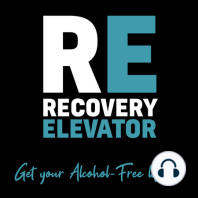47 min listen

RE 153: Do Half Measures Really Avail Us Nothing?
RE 153: Do Half Measures Really Avail Us Nothing?
ratings:
Length:
40 minutes
Released:
Jan 22, 2018
Format:
Podcast episode
Description
"Half measures availed us nothing. We stood at the turning point. We asked His protection and care with complete abandon." This phrase is commonly heard in 12 step meetings. When it comes to recovery, a half-hearted attempt could have disasterous results. Recovery can be confusing. Half measures might yield mediocre results in other areas of life, but due to the nature of the beast, unfortunatly the truth is that alcoholism can not be defeated while alchol is still being consumed, and thus requires one to quit drinking completely in order to successfully move forward without alcohol. While this is true in the long run, most of us use half measures at the beginning to try and control our drinking. This is normal and, though half measures in regard to quitting drinking leads to relapse, it may also lead one to the conclusion that they have to quit completely. Sometimes the wrong train will take you to the right destination. Zoey, with 7 months since her last drink, shares her story. SHOW NOTES [9:15] Paul Introduces Zoey. How long have you been sober? Who are you? What do you do for fun? Over 7 months sober. June 1, 2017 sobriety date. Married. Louisville, KY. 23yo. Works at a freight facility. Still learning what she likes to do for fun. Has 2 dogs. Likes music, reading, cooking. [9:40] What spurred you into sobriety? Had a car accident while under the influence that she didn't remember. [12:00] Did you ever put any rules in place to try and control your drinking? Yes. Switching types of drinks. Switched from beer to liquor to lower the quantity of drinks she consumed thinking she wouldn't be viewed as an alcoholic. She would also force herself to run a mile for each drink she consumed. [13:25] Before your accident, were there signs that you were drinking too much? Many. Husband was afraid to be around her while she drank. Also, she would jokingly mention that she was an alcholic in conversation, surprising herself. [14:45] Was this your first attempt to quit drinking after the accident? Yes. She had a meltdown and wound up in a psychiatric hospital, was diagnosed and medicated. She tried to stop because of her medication, but she couldn't last more than 5 days. She also lied to doctors about her drinking. [17:45] What's it like getting sober at your young age? Different than others. To her, age didn't matter. She believes she has hurt enough people and has felt enough pain for anyone at any age. Her friends still drink so she had to remove herself from her social connections. [19:55] How did you determine which friendships to keep and which to end? She looked at the things they did together, whether or not there was any real connection beyond alcohol. It wasn't difficult because the stakes were high. If she couldn't get sober, her life wouldn't move forward in a healthy way. [22:28] How did you get sober? Did you go to a clinic? Both inpatient and outpatient. On her 1st day of sobriety, she checked into a detox program for 6 days. After, she attented a 5 week intensive outpatient program. This was during the first month or so of sobriety. [23:45] What is outpatient treatment like? Very beneficial. She says she wasn't an easy patient. The program involved a lot of conversation and teaching, helping the patient decide what is best for the patient. [24:37] What is your point of view on the disease concept? She finds it helpful to know that she have a disease that can be treated. It is the answer she has been searching for. Not all decisions about health come from a doctor, one can decide for oneself. Also she isn't alone. [26:30] What does your recovery portfolio look like now? A day in the life. Coffee in the morning, then playing with dogs, followed by prayers and meditations. Meditation helps a lot. AA meetings at least every other night. Reach out to support group when she needs help, which is often. [27:35] How is it
Released:
Jan 22, 2018
Format:
Podcast episode
Titles in the series (100)
005: You've got to be kidding me, he's an alcoholic also?: When I found out one of my brother's best friends is an alcoholic I was blown away; an a little upset that we hadn't connected years before so we could have been working together. Here are some of the resources that Elliot likes. Joe and... by Recovery Elevator ?